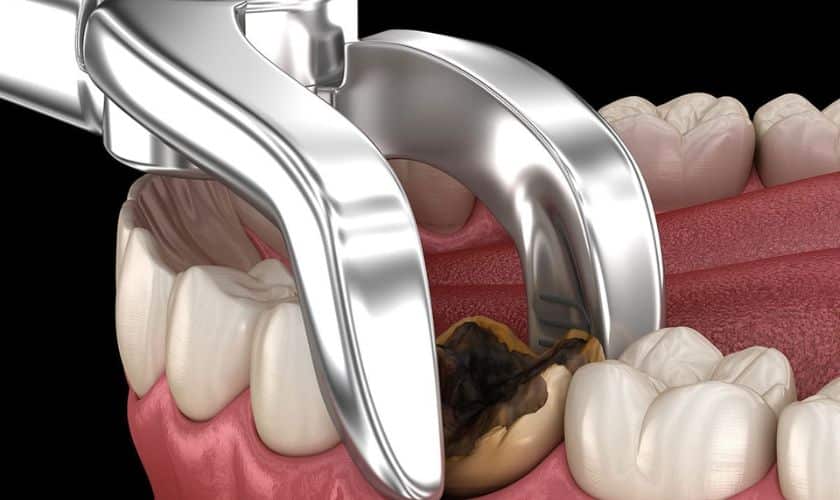Discovering Different Sedation Options for a Comfortable Knowledge Pearly Whites Removal Experience

Neighborhood Anesthesia
Regional anesthetic is a commonly used method for numbing certain locations of the mouth during wisdom teeth extraction treatments. By administering a regional anesthetic, such as lidocaine, a dentist can ensure that the client stays pain-free and comfy throughout the removal process. Local anesthesia works by briefly blocking the nerves in the mouth, preventing them from sending out pain signals to the brain. This enables the dentist to perform the extraction without causing any pain to the patient.
One of the main advantages of neighborhood anesthesia is its targeted numbing effect, which suggests that only the specific location being treated is impacted. This local technique reduces the risk of systemic negative effects and allows for a quicker recovery post-procedure. wisdom teeth removal aspendale. In addition, regional anesthesia is considered to be a regular and risk-free method in dentistry, with marginal risks involved when administered by an experienced expert
Laughing Gas

When the mask is eliminated, the impacts of the gas wear off rapidly, enabling individuals to resume their normal tasks without sticking around sedative impacts. Nitrous oxide is ideal for clients of all ages, making it a functional sedation choice for wisdom teeth extractions and various other dental procedures.
Oral Sedation

Unlike intravenous sedation, dental sedation does not call for shots or needles, making it an extra comfortable choice for individuals with an anxiety of needles. Furthermore, oral sedation is thought about risk-free and reliable when carried out by qualified oral specialists.
IV Sedation
Carried out intravenously by experienced medical experts, IV sedation is an effective technique used to induce a regulated state of deep relaxation and unconsciousness during dental treatments. Unlike dental sedation, which can be unpredictable in its impacts, IV sedation permits accurate control over the degree of sedation, making it a perfect option for complex procedures like knowledge teeth removals.
Throughout IV sedation, a sedative drug is provided directly into the bloodstream via a vein, allowing it to work rapidly and efficiently. This approach makes certain that the individual remains comfy and uninformed of the treatment while still maintaining crucial functions such as breathing and heart rate.
Among the key advantages of IV sedation is its ability to provide a much deeper degree of sedation contrasted to other approaches, making it especially appropriate for clients with high degrees of anxiousness or those undergoing substantial dental job. Additionally, the impacts of IV sedation normally diminish gradually after the procedure, lowering the probability of grogginess or sticking read what he said around side results. Overall, IV sedation uses a risk-free and reliable option for ensuring a comfortable and hassle-free experience during knowledge teeth extraction.
General Anesthetic
Having actually discussed the benefits of IV sedation for knowledge teeth extraction, the application of basic anesthesia gives an alternative choice for patients calling for a deeper degree of unfamiliarity during oral procedures. General anesthesia generates a controlled state of unfamiliarity, making certain the individual feels no pain or pain during the extraction process. This approach is especially advantageous for individuals with severe oral anxiousness, facility surgical needs, or those going through several extractions simultaneously.
General anesthesia is provided by an experienced anesthesiologist that carefully monitors the patient's vital signs throughout the treatment. It entails using intravenous drugs or breathed in gases to cause a state of unconsciousness. While under general anesthesia, the patient will not be conscious of the surgery, experience any type of discomfort, or have any kind of recollection of the treatment afterward.
Although basic anesthesia is secure when carried out by certified professionals, it brings a my link slightly greater danger compared to other sedation choices. wisdom teeth removal aspendale. Clients considering general anesthetic for wisdom teeth removal must talk about the potential threats and advantages with their dental practitioner or oral doctor to make an informed choice based on their individual requirements and medical background
Conclusion
Finally, numerous sedation choices are offered to make certain a comfortable knowledge teeth extraction experience. Regional anesthetic is typically made use of for numbing the specific area, while laughing gas provides leisure and discomfort relief. Oral sedation and IV sedation deal much deeper degrees of relaxation, relying on the patient's requirements. General anesthesia can be used for more complicated situations. It is crucial to talk to your dentist or dental cosmetic surgeon to identify one of the most appropriate sedation alternative for your procedure.
Nitrous oxide is suitable for patients of all ages, making it a functional sedation choice for wisdom teeth removals and other oral procedures.
Unlike intravenous sedation, oral sedation does not call for shots or needles, making it an extra comfy alternative for individuals with an anxiety of needles.One of the primary advantages of IV sedation is its capability to offer a deeper level of sedation compared to various other methods, making it look at this website specifically ideal for patients with high degrees of stress and anxiety or those undertaking substantial oral work.Having reviewed the advantages of IV sedation for knowledge teeth extraction, the application of general anesthesia supplies a different option for people needing a much deeper level of unfamiliarity throughout oral treatments. Oral sedation and IV sedation deal much deeper degrees of relaxation, depending on the client's requirements.